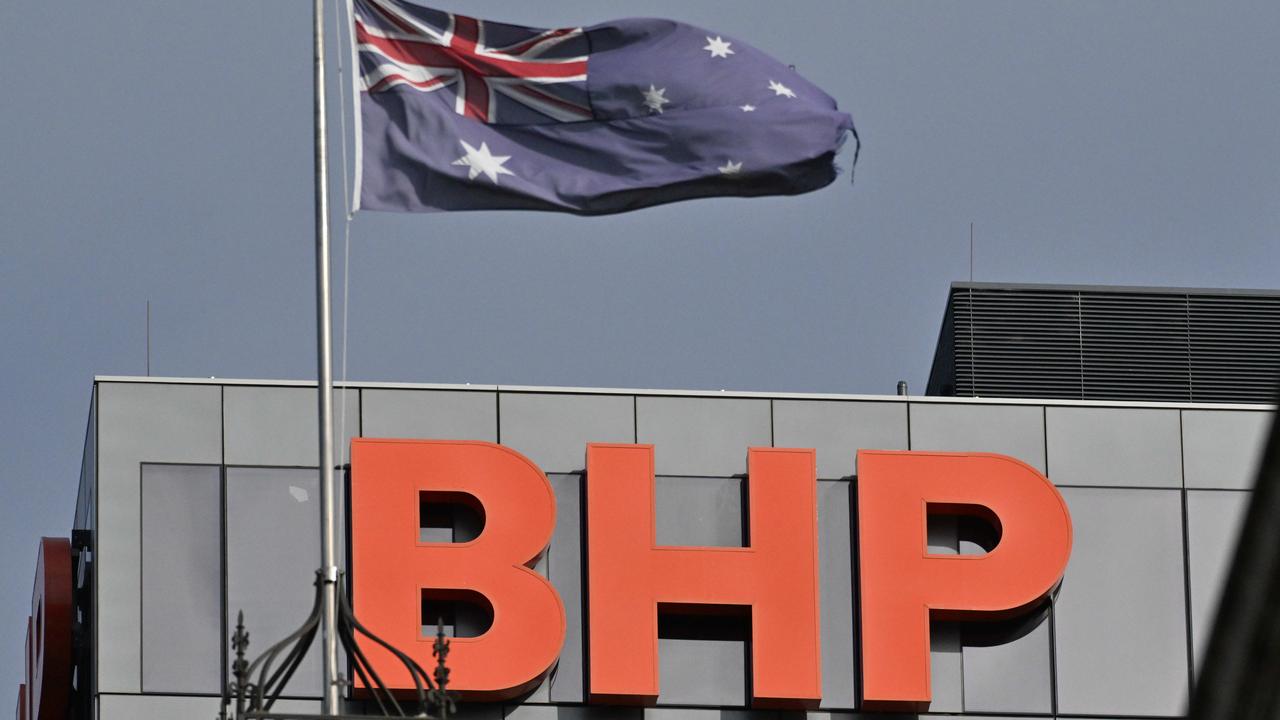‘Disastrous’: Fears for Trump presidency on global economy
Alarm bells have been sounded that if Trump wins the presidency it could see the global economy blow up and spell bad things for US democracy.
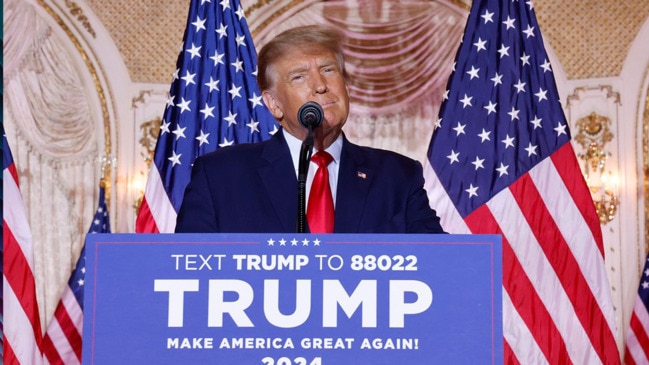
Economy
Don't miss out on the headlines from Economy. Followed categories will be added to My News.
A second Donald Trump presidency could be “disastrous” for the US economy with the impacts reverberating around the world, including in Australia.
Fears are mounting of a potential trade war, punishing tariffs, undue influence on the US central bank, ballooning government debt, further inflation and chilling consequences for climate change – as experts sound alarm bells about the prospect of Trump coming back into power.
Trump has not been modest about his achievements during his first presidency, claiming in a Time Magazine interview that he had “the greatest economy in history” while he was in charge of the US.
He has declared another shot at the presidency would give him the chance to “rebuild the greatest economy in history”.
But experts aren’t convinced and there are fears that Trump in power would be “damaging” not only for the global economy but also democracy.
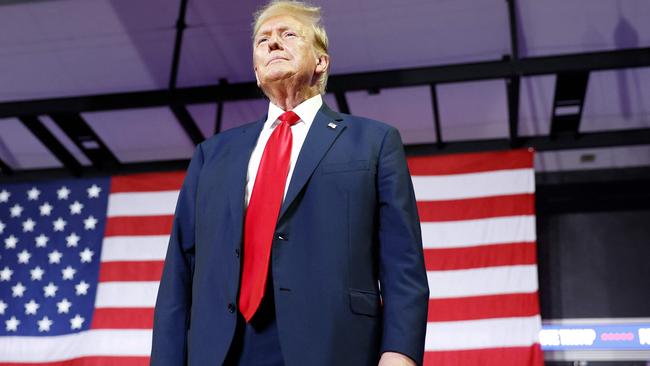
‘Disastrous for the entire world’
It is tricky to know how much an unpredictable Trump would impact on the global economy, said The Australia Institute’s chief economist Greg Jericho, but he believes that damage could be widespread.
“I don’t know if it will create a financial crisis but it certainly won’t be good for the world economy and if he implements all his policies, especially the ones that relate to tariffs, that would be disastrous for the US economy and as a result to the global economy,” he told news.com.au.
“Certainly it would be bad for Australian companies exporting into the USA and because it would potentially set off for a tit-for-tat tariff war, it would be pretty disastrous for the entire world. I can’t see much good coming out of that.”
One of Trump’s signature economic policies is his plan to impose tariffs on imports from all nations.
He claims a 10 per cent tariff, which would hit Australian businesses, would protect US businesses from nations who are out to “steal our jobs” and “steal our wealth”.
China will be whacked with a 60 per cent tariff on imports, prompting concerns about a trade war and higher costs.
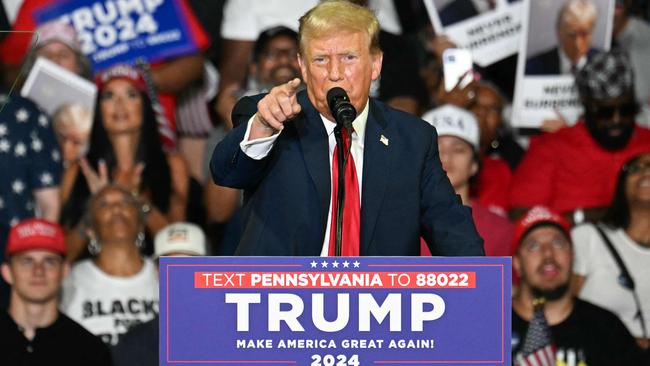
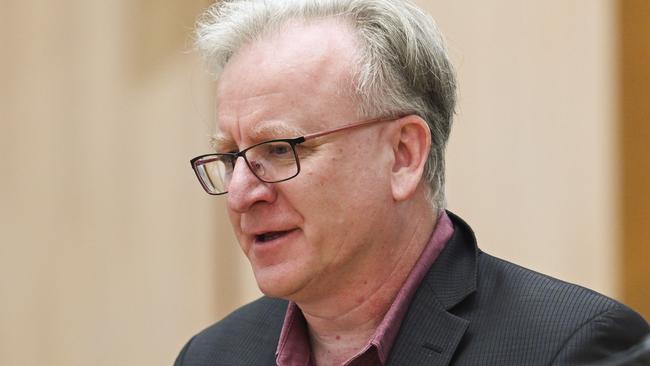
Dr Jericho said the tariffs were the “big danger” in Trump’s policy arsenal.
He said the “protectionist” tariff policies was an “absurd political response that has no real basis in economics”.
“It would push prices up in America and for no reason other than to make it seem he is being tough on China,” he added.
“It is actually just hurting American consumers rather than punishing Chinese producers.”
But this isn’t a new thing for Trump who imposed tariffs on steel during his first term. However, studies showed the move led to a $US3.4 billion ($A5.1 billion) reduction in the use of steel by manufacturers and it lifted steel production domestically in the US by just 2 per cent.
Meanwhile, a study from Peterson Institute analysts Kimberly Clausing and Mary Lovely found the policy would cost $1700 in taxes a year to middle income earners and reduce lower earners’ income by 3.5 per cent.
The analysis also estimated that the planned tariffs would generate an extra cost to consumers of $US500 billion ($A753 billion) a year.
Oxford Economics also examined the impact of a China backlash by restricting its citizens from visiting the US, which would cost the US economy almost $US12 billion ($A18 billion) in 2026.
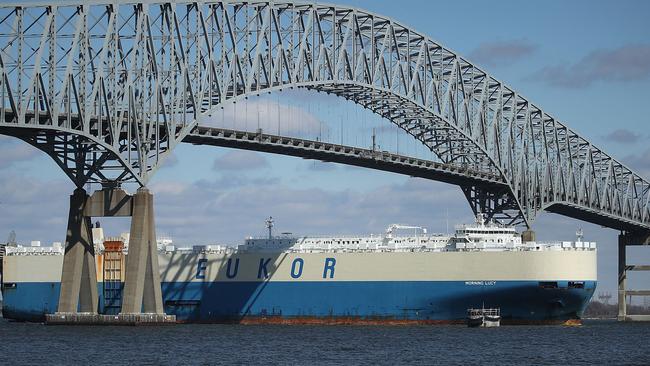
University of Queensland senior fellow in economics John Quiggin said the US wasn’t a central trading partner for Australia but it could have an impact on industries like beef and sugar.
“Biden has already imposed 100 per cent tariffs on Chinese electrical vehicles, so it’s not a radical discontinuity between Biden and Trump governing,” he added.
Others, like United States Studies Centre director of research Jared Mondschein, believe the policy is a classic Trump negotiation tactic rather than a serious move to implement them.
“I would think that he would use the threat of these tariffs as a way to get people to the negotiating table and get some concessions of out of them on certain matters,” he said.
Tariffs are also at a low base in the US, he added, with the average sitting at 2.3 per cent last year overall and 5.5 per cent for South Korea and 4.2 per cent for the EU, although he admits pushing them higher would not be good for economic growth.
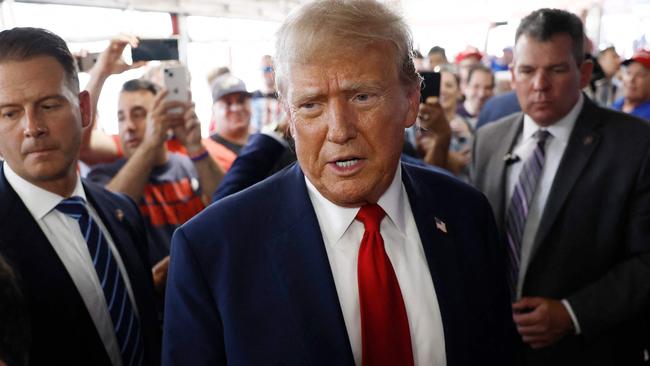
‘Wacky views’
Immigration has also become a hot issue with Trump declaring he will undertake mass deportations of “illegal” migrants, claiming there as many as 15 to 20 million in the US.
He told The Times that of these illegal migrants, “many of them from jails, many of them from prisons, many of them from mental institutions”, would be sent back to their native country.
But many of these people actually work in crucial sectors including construction, agriculture and the services sector.
The result would be “massive labour shortages in America” which would set off inflation in the US and have a knock on effect across the world, Dr Jericho said.
“Generally inflation in America leads to high inflation elsewhere so that wouldn’t be good,” he noted.
“Its pretty hard for Australia to avoid any waves that might hit us from any storms overseas. Australia is a small economy relative to America, China and the EU combined so if the world goes down we generally go down with it.”
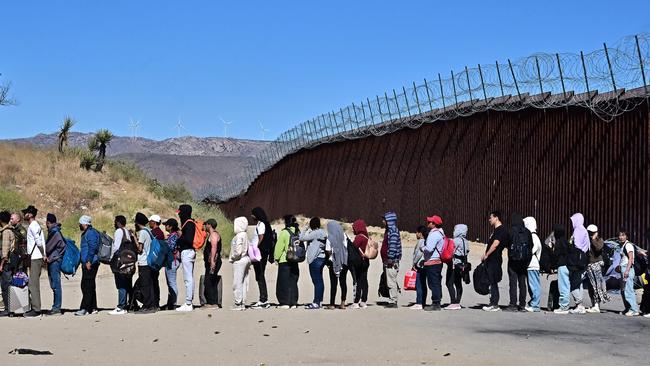
Another global financial crisis could prompt the Australian government to do a U-turn and consider stimulatory measures again, he added.
“That is a long way off. It would really require Donald Trump to actually go through on everything he is saying he is going to do but one would hope that reason would prevail. But again that is perhaps wishful thinking of my behalf,” he said.
“Certainly we know even during this first term he did have some advisers with pretty wacky views.”
Trump’s election would also prompt governments and central banks around the world to be on alert for any potential economic downturns that might occur due to his policies, he added.
In his first term, Trump was happy to hand out tax cuts for high-income earners and the move is due to end in 2025.
But he is keen to extend them – at a cost of $A6.7 trillion over a decade – and also significantly lower the business tax rate.
But this would just exacerbate inequality in America and reduce the ability to provide public services, according to Dr Jericho, which would be “horrific” for citizens.
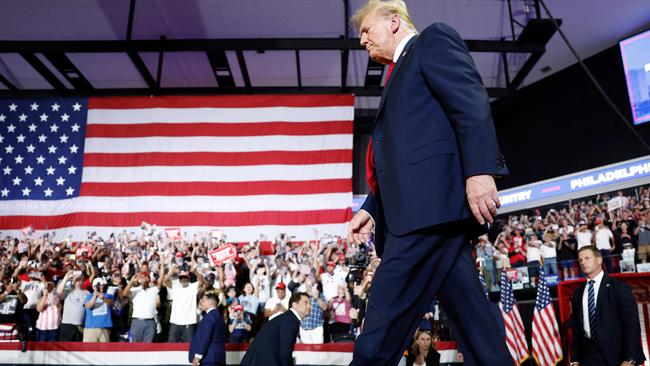
A catastrophe incoming?
Trump was also happy to splash the cash in his first presidency run – shelling out more than $US500 billion in three years.
But economic conditions were different back then and now the US government debt sits at a whopping $US1 trillion ($A1.5 trillion) and growing by $US1 trillion every 100 days.
Yet, Trump has offered no policies on how he intends to cut spending to tackle the pile of debt amassed.
Prof Quiggin said big deficits were likely under Trump and this would impact Australia with higher interest rates for longer.
“The borrowing required to keep those deficits financed will raise interest rates globally and if that happens we won’t return to very low interest rates that prevailed before Covid,” he cautioned.
“The bigger risk is the Reserve Bank has already overtightened and it will have longer term effects … but it is much more likely to happen because of the result of domestic mistakes rather than flow on from the US.”

Under attack
The US equivalent of the RBA, the Fed, has already copped attacks from Trump. In particular, its chair Jerome Powell, whose term runs until 2026, has been accused by Trump of leaving interest rates too high.
It’s raised concerns Trump will interfere with the Fed’s decision making on interest rates and seek to ensure he has the final say.
There will almost certainly be political interference, said Prof Quiggin.
“We are looking at something approaching personal dictatorship where the president runs everything and its public service filled with personal loyalists and it will include telling the Fed what to do,” he predicted.
“It will mean lower interest rates and again that is largely going to be an issue for the US but it’s difficult of course to sustain big deficits and lower interest rates and there will be negative economic impacts down the track.”
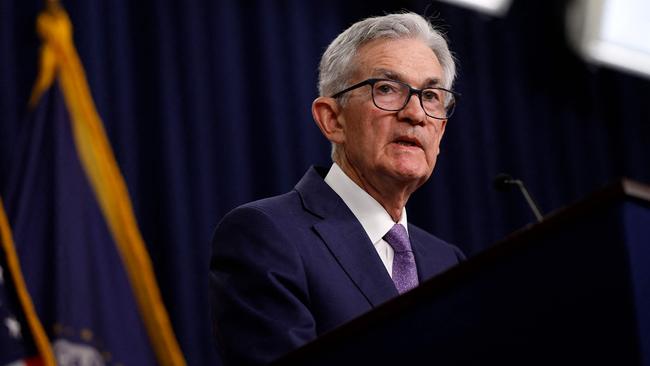
But Mr Mondschein believes Trump wouldn’t “drastically change” the Fed as president as the Senate would not write him a “blank cheque” to do what he wants.
Meanwhile slashing interest rates in the US would increase inflation there, Dr Jericho said, but ironically it would be good for Australia.
It could decrease the need to raise interest rates in Australia because the exchange rate would be more favourable
“For America the situation would be more disastrous than for the rest of the world but I can’t see any sense of it being good news for the global economy if he implements any of his policies and that’s always a big if with Donald Trump,” he added.
“It is always easy with Trump to exaggerate the catastrophe that he would make on the global stage from an economic sense. But for me the problems with Trump are more to do with democracy in America.”
Prof Quiggin thinks interest rates will already be falling in Australia before Trump was to take power.
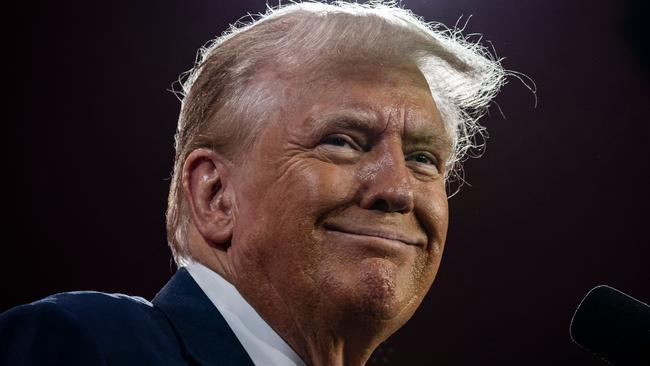
Climate change
Under Biden legislation, renewable energy is expected to be propping up US electricity production by 68 per cent by 2050, but it could fall as low as 58 per cent under Trump, Oxford Economics analysis found.
A Trump presidency could “effectively kill any action in America against climate change”, according to Dr Jericho.
“That is where the real cost to the global economy and the global society will really come true. It would pretty much lock in the level of emissions increase that pretty much makes 1.5 degree increase in temperatures unavoidable and really heightens the chances of an increase beyond 2 degrees,” he warned.
“So I think that is the more concerning thing. We should be treating that as much of a concerns.
“As much as we might worry if his policies will cause inflation to rise - and it’s certainly something to care about - but in the grand scheme of things his election will derail to a large extent any global efforts to tackle climate change and that’s going to be one of the more ongoing and long term impacts.”
Mr Mondschein thinks a pact between Australia and US that focuses on clean energy and critical mineral supply chains will still continue but will be reframed away from talking about climate change under a Trump administration.
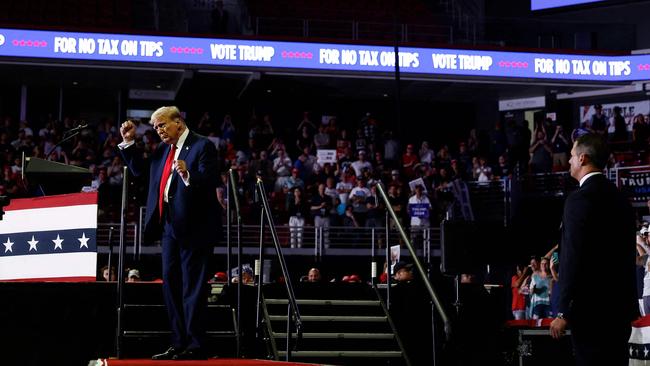
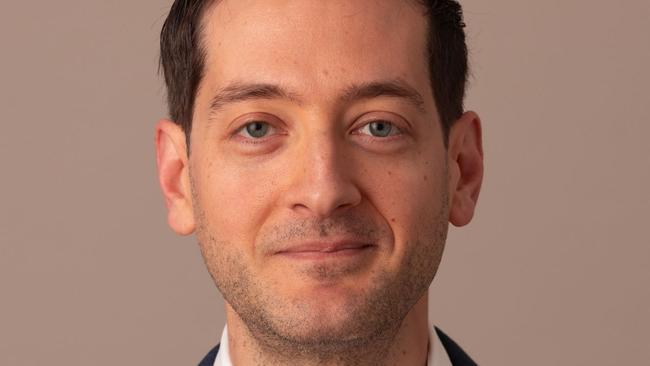
From democracy to dictatorship
Big tax breaks for the rich and a breakdown in the globalised trade order were concerns for a Trump presidency, said Prof Quiggin, although he warned there was a greater threat at play.
“There is the overthrow of democracy and Trump rules forever,” he said. “Its hard to predict but it would bad in the long run for economics and it would be a big shake-up in the world political order which would have some big effects.
“We really are in uncharted territory. Basically we haven’t had a US president rule indefinitely and overthrow a US election result.
“But it would be the emergence of crony capitalism where the same thing as in Russia where business people have to do what Trump wants and face consequences but how that plays out is difficult to tell.”
Dr Jericho agreed that the greatest “damage” to emerge from a Trump presidency isn’t an economic impact but the threat to global warming and democracy.
“The bigger concern is democracy and the action on climate change – that’s where we need to keep the focus,” he said.
“Sometimes we worry too much about the economy and what’s going to happen with tax rates and prices this year. I think if democracy fails in America it’s bigger than the cost of living in any one year.”
Originally published as ‘Disastrous’: Fears for Trump presidency on global economy





